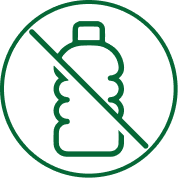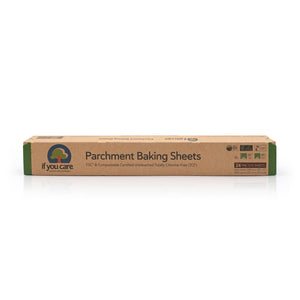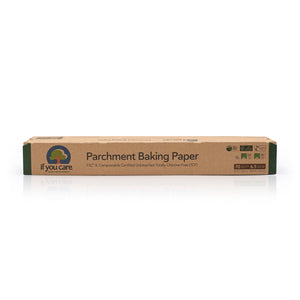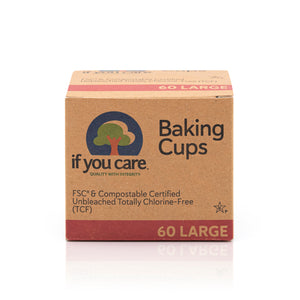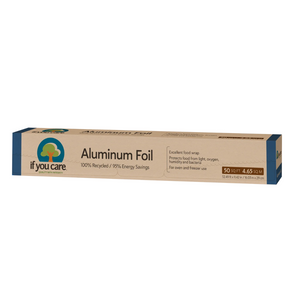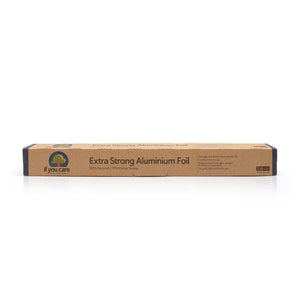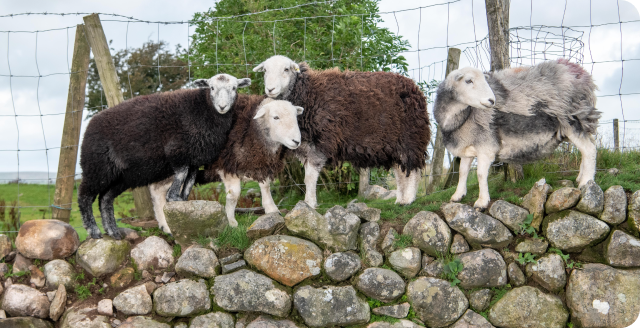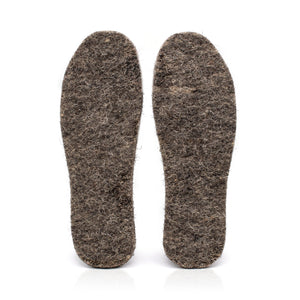Why do I need compostable cling film?
Cling film is one of those products that everyone has in their kitchen cupboard. Its easy to reach for, simple to use and is the perfect storage solution for all kinds of foodstuffs.
Most of us buy our cling film while doing the weekly shop, its something all supermarkets stock and its not something we really think about while purchasing. But every option available on supermarket shelves is made of entirely virgin PVC plastic!
Our home-compostable cling film fully biodegrades within 90 days under composting conditions. It's entirely plastic free, made from corn starch and leaves no chemical trace once it's broken down. It looks, and acts like just like standard cling film, and is a perfect environmentally friendly like-for-like swap!
Changing to compostable cling film will help to reduce the amount of plastic waste that your home produces, which in turn will reduce the amount of plastic that enters the wider environment - a big win in our eyes!
How do I use compostable cling film?
Like normal cling film of course. Our home compostable cling film is just as good as the regular stuff. Wrap to your hearts content - without the guilt!
Things you might like to use our biodegradable cling film for include:
- Covering bowls or tubs of leftover food before putting them into fridge
- Portioning up veg or protein before freezing
- Storing prepared meals
- Acting as a makeshift lid or cover for cupboard staples that have lost their lid
- Plus many more
The problems with plastic cling film:
>Not only is cling film single use plastic, it's sticky, bendy, squashable single use plastic. It's absolutely awful for the environment. It can conform into any shape, ending up squished into all types of crevice or crack (or mouth!) and is particularly detrimental to aquatic animals.
It's is clear and jelly-like when it's submerged in water, so cling film has the uncanny resemblance to jellyfish - a turtles favourite food. Meaning turtles can (and do!) end up snacking on cling film instead of the real thing. This causes significant digestive distress for the turtles, which are unable to regurgitate the plastic, often leading to intestinal blockages or organ damage. Sadly 22% of turtles that ingest just a single piece of soft plastic end up perishing - a terrifying statistic!
>Cling film and other soft single use plastics also get caught up on already struggling coral reefs, wrap around the limbs and tails of aquatic wildlife, as well as being ingested. Smaller pieces that end up being eaten are digested and processed into the wider bodies of animals, which means over time microplastics have entered the food chain. It's important for us to make conscious choices when it comes to plastic, which is why we introduced our range of recycled plastic home-ware in the first place, to allow our customers easy access to more eco-conscious alternatives.
Why do I need compostable cling film?
Cling film is one of those products that everyone has in their kitchen cupboard. Its easy to reach for, simple to use and is the perfect storage solution for all kinds of foodstuffs.
Most of us buy our cling film while doing the weekly shop, its something all supermarkets stock and its not something we really think about while purchasing. But every option available on supermarket shelves is made of entirely virgin PVC plastic!
Our home-compostable cling film fully biodegrades within 90 days under composting conditions. It's entirely plastic free, made from corn starch and leaves no chemical trace once it's broken down. It looks, and acts like just like standard cling film, and is a perfect environmentally friendly like-for-like swap!
Changing to compostable cling film will help to reduce the amount of plastic waste that your home produces, which in turn will reduce the amount of plastic that enters the wider environment - a big win in our eyes!
How do I use compostable cling film?
Like normal cling film of course. Our home compostable cling film is just as good as the regular stuff. Wrap to your hearts content - without the guilt!
Things you might like to use our biodegradable cling film for include:
- Covering bowls or tubs of leftover food before putting them into fridge
- Portioning up veg or protein before freezing
- Storing prepared meals
- Acting as a makeshift lid or cover for cupboard staples that have lost their lid
- Plus many more
The problems with plastic cling film:
>Not only is cling film single use plastic, it's sticky, bendy, squashable single use plastic. It's absolutely awful for the environment. It can conform into any shape, ending up squished into all types of crevice or crack (or mouth!) and is particularly detrimental to aquatic animals.
It's is clear and jelly-like when it's submerged in water, so cling film has the uncanny resemblance to jellyfish - a turtles favourite food. Meaning turtles can (and do!) end up snacking on cling film instead of the real thing. This causes significant digestive distress for the turtles, which are unable to regurgitate the plastic, often leading to intestinal blockages or organ damage. Sadly 22% of turtles that ingest just a single piece of soft plastic end up perishing - a terrifying statistic!
>Cling film and other soft single use plastics also get caught up on already struggling coral reefs, wrap around the limbs and tails of aquatic wildlife, as well as being ingested. Smaller pieces that end up being eaten are digested and processed into the wider bodies of animals, which means over time microplastics have entered the food chain. It's important for us to make conscious choices when it comes to plastic, which is why we introduced our range of recycled plastic home-ware in the first place, to allow our customers easy access to more eco-conscious alternatives.



